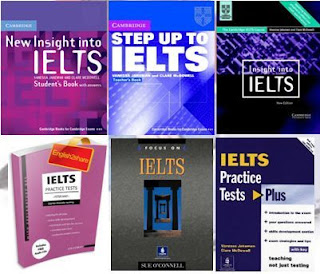English Proficiency tests are used for many reasons to measure English communication skill. IELTS and TOEFL are the leading tests im immigration and education for foreign students. SAT, ACT, GRE, and GMAT are also important for education. We practice the exam and get you prepared. Focus is placed on the weakest areas, usually that means Speaking and Writing.
TOEFL
TOEFL means Test Of English as a Foreign Language. There are two kinds of TOEFL test – the TOEFL PBT and the TOEFL IBT. The TOEFL PBT is a paper based test while the TOEFL IBT is an internet based test. TOEFL IBT was first introduced in 2005 and has been popular ever since.
What is the purpose of TOEFL?
TOEFL exams are administered to measure the student’s ability to survive and cope in an English academic setting. According to ets.org, “It has been administered more than 20 million times since 1964, and is available in more than 180 countries. It is also the most accepted test in the world. More than 6,000 colleges, universities, and agencies in 110 countries accept TOEFL scores. That means that students have the flexibility to use their TOEFL test scores worldwide.” Thus, more doors of opportunities are opened for those who are able to pass the TOEFL
What’s in the TOEFL IBT?
According to TOEFL tips from ets.org, these are the new things about the TOEFL ibt:
- It tests your Reading, Writing, Listening, and Speaking in academic settings
- A speaking section with six tasks has been added. The test takers wear headphones and speak into a microphone, which is digitally recorded.
- The Writing section has been expanded. The test takers should write an essay in support of an opinion and response to a material that they have heard and read.
- Note taking is allowed
- This test takes about four hours
- The test is delivered on computer via the Internet
- The test takers can view their scores online.
SOURCE: ets.org
IELTS
Source: Wikipedia.orgIELTS (pronounced /ˈaɪ.ɛlts/), or 'International English Language Testing System', is an international standardised test of English language proficiency. It is jointly managed by University of Cambridge ESOL Examinations, the British Council and IDP Education Pty Ltd, and was established in 1989.There are two versions of the IELTS: the Academic Version and the General Training Version:
- The Academic Version is intended for those who want to enrol in universities and other institutions of higher education and for professionals such as medical doctors and nurses who want to study or practice in an English-speaking country.
- The General Training Version is intended for those planning to undertake non-academic training or to gain work experience, or for immigration purposes.
It is generally acknowledged that the reading and writing tests for the Academic Version are more difficult than those for the General Training Version, due to the differences in the level of intellectual and academic rigour between the two versions.IELTS is accepted by most Australian, British, Canadian, Irish, New Zealand and South African academic institutions, over 3,000 academic institutions in the United States, and various professional organisations. It is also a requirement for immigration to Australia, New Zealand and Canada.No minimum score is required to pass the test. An IELTS result or Test Report Form is issued to all candidates with a score from 1 (no knowledge) to 9 (expert user) and each institution sets a different threshold. Institutions are advised not to consider valid a report older than two years, unless the user proves that he has worked to maintain his level.[1] [2]In 2007, IELTS tested over a million candidates in a single 12-month period for the first time ever, making it the world's most popular English language test for higher education and immigration.[3]In 2009, 1.4 million candidates took the IELTS test in over 130 countries.
Read about the other tests here (Coming Soon!)



.gif)
.gif)





0 Responses So Far: